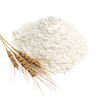Sign In Chef

By using our free meal planner (and the rest of spoonacular.com) you have to agree that you and only you are responsible for anything that happens to you because of something you have read on this site or have bought/cooked/eaten because of this site. After all, the only person who controls what you put in your mouth is you, right?
Spoonacular is a recipe search engine that sources recipes from across the web. We do our best to find recipes suitable for many diets — whether vegetarian, vegan, gluten free, dairy free, etc. — but we cannot guarantee that a recipe's ingredients are safe for your diet. Always read ingredient lists from the original source (follow the link from the "Instructions" field) in case an ingredient has been incorrectly extracted from the original source or has been labeled incorrectly in any way. Moreover, it is important that you always read the labels on every product you buy to see if the product could cause an allergic reaction or if it conflicts with your personal or religious beliefs. If you are still not sure after reading the label, contact the manufacturer.
We also attempt to estimate the cost and calculate the nutritional information for the recipes found on our site. Again, we cannot guarantee the accuracy of this information. Additionally, our nutrition visualizer that suggests that you limit sodium, sugar, etc., and get enough protein, vitamins, and minerals is not intended as medical advice. Similarly, our health tips are based on articles we have read from various sources across the web, and are not based on any medical training. The team behind spoonacular does not possess any medical qualifications and the information may be found to be incorrect or out of date based on future research. If you need help planning your diet or determining which foods (and recipes) are safe for you, contact a registered dietitian, allergist, or another medical professional.
Spoonacular is not responsible for any adverse effects or damages that occur because of your use of the website or any information it provides (e.g. after cooking/consuming a recipe on spoonacular.com or on any of the sites we link to, after reading information from articles or shared via social media, etc.)
×$2.47 per serving

1 likes

Ready in 45 minutes

Spoonacular Score: 19%
If you want to add more dairy free and lacto ovo vegetarian recipes to your recipe box, Lemon Bar Cookies might be a recipe you should try. This dessert has 3265 calories, 51g of protein, and 47g of fat per serving. This recipe serves 1. For $2.47 per serving, this recipe covers 49% of your daily requirements of vitamins and minerals. This recipe is liked by 1 foodies and cooks. It is brought to you by Foodista. From preparation to the plate, this recipe takes around 45 minutes. If you have baking powder, salt, eggs, and a few other ingredients on hand, you can make it. All things considered, we decided this recipe deserves a spoonacular score of 75%. This score is pretty good. If you like this recipe, you might also like recipes such as Oatmeal Cranberry White Chocolate Chip Cookies (aka Granola Bar Cookies), Lemon Bar, and Lemon Bar Cheesecake.
Cream Sherry, Port Wine, and Moscato d'Asti are my top picks for Dessert. A common wine pairing rule is to make sure your wine is sweeter than your food. Delicate desserts go well with Moscato d'Asti, nutty desserts with cream sherry, and caramel or chocolate desserts pair well with port. One wine you could try is NV Solera Cream Sherry. It has 4.5 out of 5 stars and a bottle costs about 17 dollars.
 The Solera Cream Sherry has a brilliant amber and deep copper hue. With butterscotch and pecan aromas, the sweet salted nut and brown spice aromas carry a complex caramel accent. A sweet entry leads to a rounded, lush, moderately full-bodied palate with a lengthy, flavorful finish.
The Solera Cream Sherry has a brilliant amber and deep copper hue. With butterscotch and pecan aromas, the sweet salted nut and brown spice aromas carry a complex caramel accent. A sweet entry leads to a rounded, lush, moderately full-bodied palate with a lengthy, flavorful finish.
» Get this wine on Amazon.com
























Read the detailed instructions on Foodista.com – The Cooking Encyclopedia Everyone Can Edit